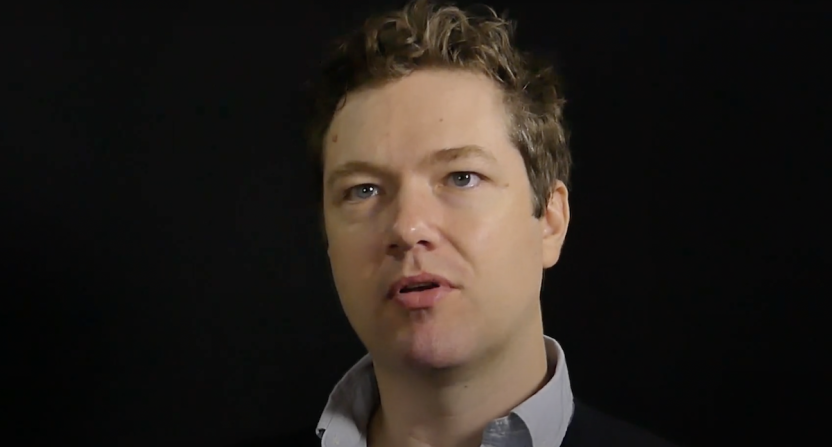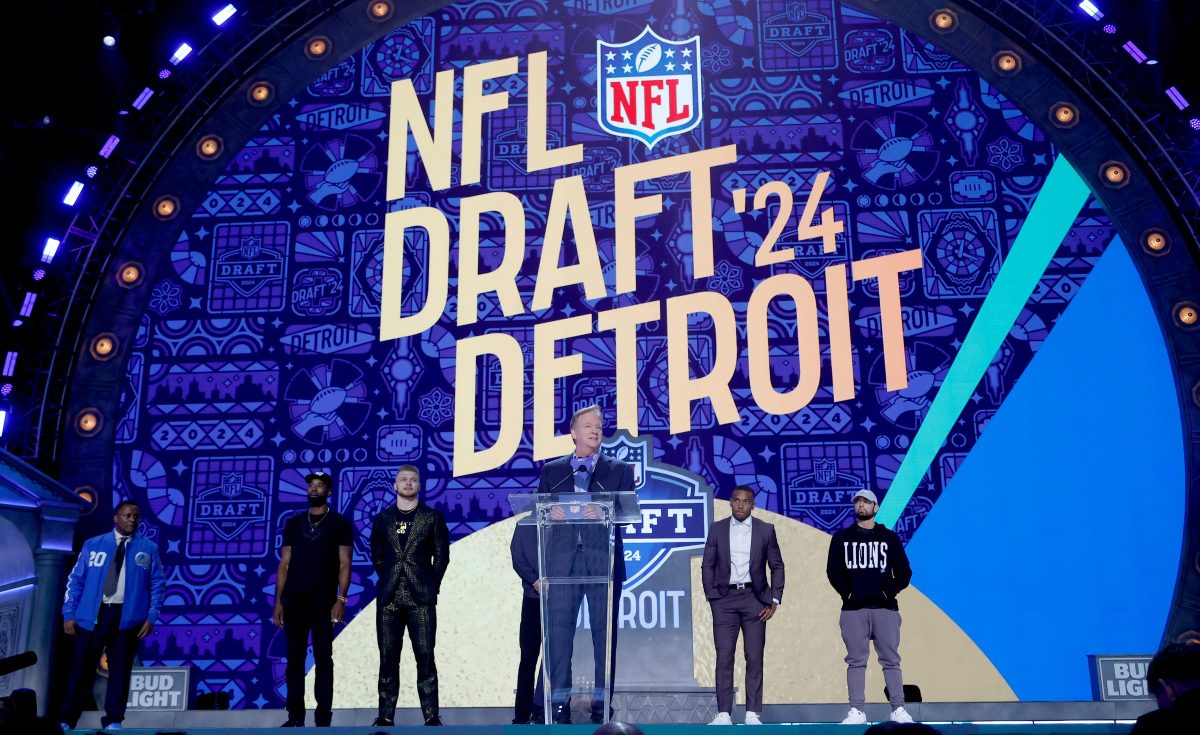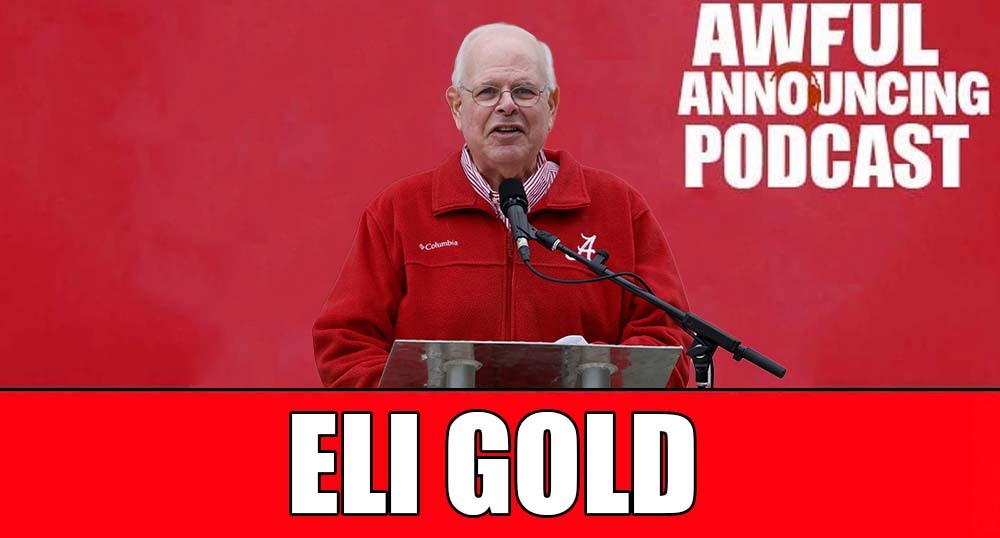There have been several unusual public developments around former Deadspin writer and editor Tim Burke over the last month. Burke, who now runs his own Burke Communications firm, had his Tampa home raided by the Federal Bureau of Investigation early last month, with that agency seizing computers and video devices. His wife Lynn Hurtak, a recently-reelected Tampa City Council member, said shortly afterwards that that FBI search warrant was “solely related to my husband’s work as a journalist.”
Last week, The Tampa Bay Times reported that the raid “stemmed from an investigation of alleged computer intrusions and intercepted communications at the Fox News Network.” That report, from Christopher Spata, Dan Sullivan, and Justin Garcia, said those alleged intrusions at Fox related to behind-the-scenes videos from Tucker Carlson’s show that were published at Vice News and Media Matters for America. Burke was not specifically mentioned in the letter a Tampa federal prosecutor sent to Fox News, but the Times cited multiple sources saying the raid on Burke’s home was connected to that letter and that investigation. But, as per a The Washington Post piece Friday from Jeremy Barr and Will Sommer, Mark Rasch, a lawyer for Burke, says those videos were “accessible to the public” and Burke “never hacked Fox News”:
A lawyer for Burke, Mark Rasch, confirmed to The Washington Post that Burke’s home was searched in connection with the Fox cybercrime investigation. But he denied any criminal behavior by Burke.
“He never hacked Fox News,” Rasch said. “We are confident that when all the facts come out, it will be demonstrated that Timothy never hacked anyone and that all the information he provided was accessible to the public.”
Rasch declined to say where Burke found the videos. Instead, he offered a defense rooted in the First Amendment rights afforded journalists: that Burke had done nothing beyond his role as a seeker and publisher of newsworthy information.
…Burke no longer works for a news organization and runs his own communications company, but Rasch said he is still engaged in journalism.
“Tim is a master at finding links to stuff publicly posted on the internet,” he said. “If a video is posted, public, unencrypted, and unprotected, then there’s simply no crime committed when a journalist like Tim finds it, reviews it, and accurately reports on it, even where, and maybe especially where, the subjects wish it was suppressed. That’s the essence of journalism in the digital age.”
What’s particularly interesting around these public comments from Rasch is that they completely skip past the initial “I got it from a source” defense one might expect. There’s a long history of journalists and publications reporting on even illegally-obtained material, from the Pentagon Papers to the Panama Papers. In those cases and others, there have sometimes been attempts to prosecute the figure who leaked the material to journalists, especially when that comes from government sources. That happened with Daniel Ellsberg (charges eventually dropped), Edward Snowden (charges laid, now a Russian citizen), and Reality Winner (sentenced to five years in prison).
But it’s extraordinarily rare to see attempts to go after journalists or publications for reporting on information leaked to them, even if that information was obtained outside the law. There have been occasional cases where that has happened in cases of reporters refusing to reveal a source to a governmental investigation, as with Judith Miller in 2005, but they’re much more the exception than the rule. What’s much more typical is where a source might be punished by their company (or the government, in those cases) if identified as the source of a leak. But it’s not common to see action against a reporter or a publication reporting on that leak. Along those lines, it’s worth considering another paragraph from that Barr/Sommer story:
Aaron Mackey, free speech and transparency litigation director for the Electronic Frontier Foundation, said publishers have “a near absolute First Amendment right to report on materials, regardless of the fact of whether that material was obtained illegally” — as long as they don’t play a “direct role” in procuring them.
And Media Matters for America and Vice have reportedly not yet been named in any filings here. So they may not have had that direct role. And it adds to the unusual nature of the discussions here that Burke is the only one publicly identified as at least a raid target (he has not yet been charged). And Rasch’s comments are interesting, as they seem to indicate that Burke got these files himself. And those comments come with a claim that these videos were “publicly posted.”
Now, that doesn’t mean that Fox put the files anywhere you could get from a link on their site. There have been quite a few cases of notable information coming out from organizations storing internal data in unlinked destinations that can be guessed at by watching their link patterns. But that’s happened a number of times without any suggestions of FBI investigations or even claims of it being illegal. So if that’s the case here (Rasch doesn’t offer specifics on exactly how Burke got this information), the governmental response to it seems much more intense than you’d expect.
A key area of discussion with journalism and the law is around obtaining information an individual, corporation or government doesn’t want out there. Much of journalism can be described that way, or all of it, if you buy into the quote incorrectly attributed to George Orwell. But where this can get particularly thorny from a legal standpoint is when the information in question is a specific video, audio file, or document that is then released to the public, rather than just filtered through “outlet has learned” or “sources say” rephrasings.
There are other things beyond standard defamation claims that can come into play with specific documents or videos. Those include privacy laws. There, Adam Schefter tweeting an image of Jason Pierre-Paul’s medical chart led to a lawsuit that was eventually settled. And Hulk Hogan’s lawsuit that led to the bankruptcy and sale of Gawker Media was an invasion of privacy suit over a sex tape.
Another aspect to consider is claims that material is copyrighted or proprietary, which sometimes shows up outside journalism. The latter was seen in the Houston Astros’ database “hack” (which was just typing a password for someone else that he knew) by St. Louis Cardinals’ analyst Chris Correa. And there can be legal consequences for those “alleged computer intrusions,” even if that’s all they involve; Correa wound up sentenced to 18 months in prison.
There have also been cases of insiders sentenced for passing on login information, as happened with Matthew Keys. So a suggestion of Burke obtaining login information and using it could be bad for both him and any internal source. But Rasch is painting a different picture here, saying these files were “publicly posted on the internet” and that “it will be demonstrated that Timothy never hacked anyone and that all the information he provided was accessible to the public.” If that is indeed the case, there are going to be a lot of questions on why this led to a prosecutor’s letter to Fox and to a FBI raid on Burke. So this case will certainly be one to watch for further developments, particularly if it is in fact demonstrated that these files were “accessible to the public.”







